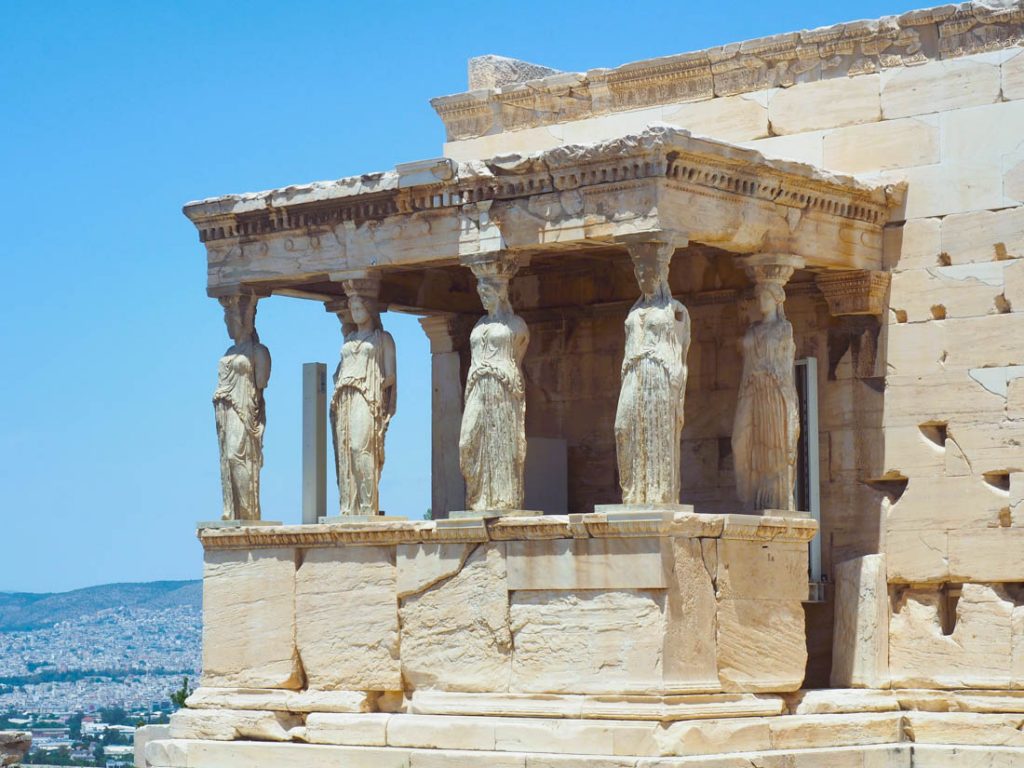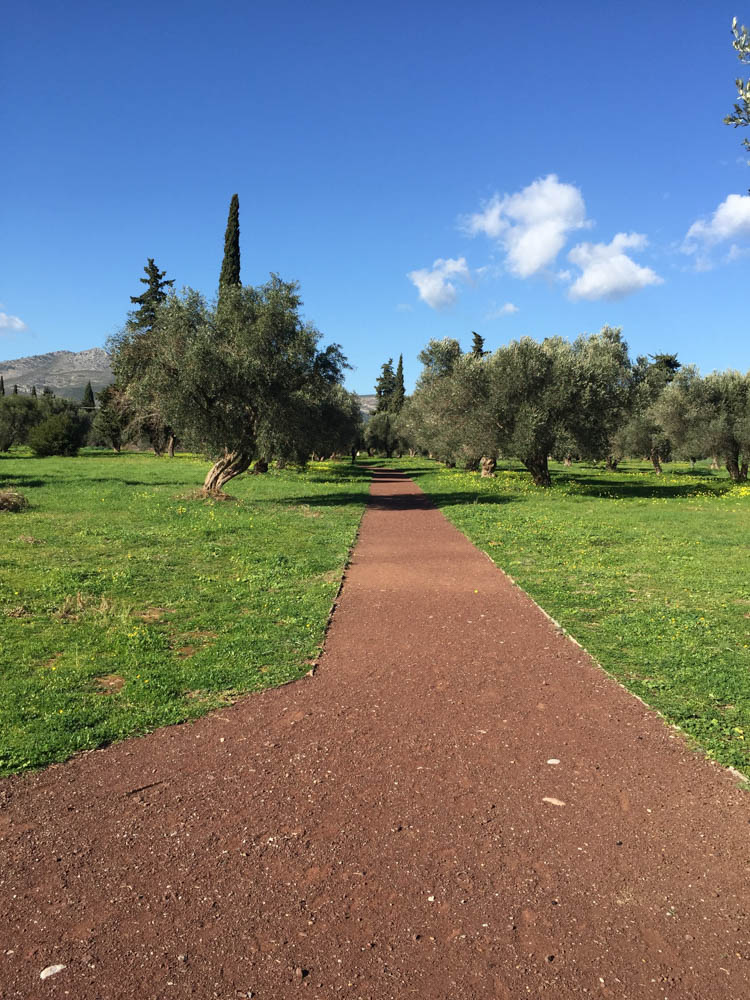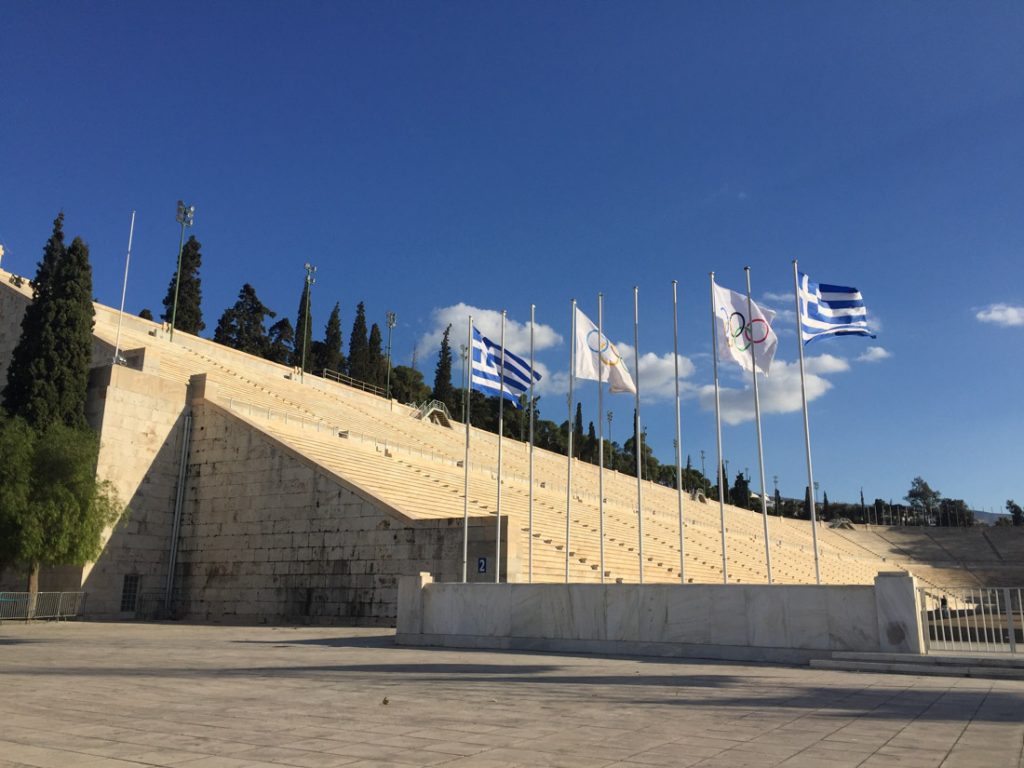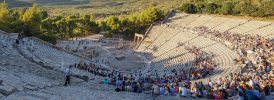During the Autumn months, festive and ambitious races of amateur and professional runners take place in cities large and small. The Marathon is now a beloved tradition, a celebration of athletics, dedication, and human achievement. But how did it get its name? And why the unusual yet quite specific – 42.195 kilometers (or 26 miles and 385 yards), length of the course? The answer comes to us from Ancient Greece.
The Background – Cyrus in Smyrne
It was not yet Smyrne though- this is ancient Ionia, a beautiful and strategic coastal region in today’s Turkey, inhabited then by ancient Greeks and coveted by the Persians, under the leadership of Cyrus II (Cyrus the Great), the founder of the powerful Achaemenid Empire. In the mid 6th century BC, Cyrus established tyrants to control the conquered territories. This ultimately did not go well; the tyrant Aristagoras of Miletus ended up inciting the Greeks to rebel against the Persians. The Athenians joined the cause. Eventually, together with the Eriereans (a city in Evia), the Athenians burned Sardis, a city of the Persian empire. By then, Darius was the emperor of the Persians, and he wanted vengeance.
Darius’ Revenge

Things went well at first for the Persians. They began their campaign to subjugate the Greeks en mase and once and for all in 492 BC, retaking Thrace and Macedon. Then, in 490, they managed to gain control of the Cyclades, and to destroy Eretria. Coveted Athens remained in their sights. So strong was Darius’ thirst for revenge- to destroy both Eretria and Athens – that it is said he charged a servant to remind him three times before dinner every day (“Master. Remember the Athenians.”)
490 BC – A Major Victory
Remember the Athenians he did. But the tides changed against Darius at Marathon, a small city some short distance from Athens. Here, the greatly outnumbered Athenians, aided also by the Plataeans, had the advantage of strategy. Led by Athenian General Miltiadis, they blocked the exits from the plane of Marathon, and maneuvered the invading Persians skillfully into terrain where their cavalry could not join. The Persians panicked and fled, many slaughtered before reaching their ships. (Athens had called to the Spartans for help, but the Spartans – citing a religious festival – did not come until the battle was over.)
 A Turning Point
A Turning Point
The victory was a great triumph as well as a turning point, raising Greek morale and signaling the possibility of ultimately vanquishing the Persians. It was also a cultural turning point – Athens was on the cusp of its “golden age” – that period of political hegemony, economic prosperity, and cultural flourishing that provides the foundations for western culture with milestones in philosophy, politics, and architecture, to say nothing of the invention of drama.

All Athens Was in Suspense
Knowing that the Persians were en route to destroy their city and that the Athenian and Plataen forces had gone to stop them, the city was in a state of high alarm. The means of communication was then a “hemerodrome” – a “day-runner” or courier. Pheidippides was such a man. It was he who was dispatched to Sparta to ask for their help, and he who quickly returned to say that they were not coming.
He then had the happy task of communicating victory to the waiting Athenians. Already worn down from his earlier exertions, he managed only to say “nikomen” – We won – before collapsing and dying of exhaustion.
The final route that did him in was the distance from Marathon to Athens – the 42.195 kilometers (or 26 miles and 385 yards) of today’s Marathon, commemorating one of the most important runs of history.
Greece Victorious, Once Again
 When the Olympic Games were revived for the modern era and first celebrated in Athens in 1896, one of the organizers was inspired by the story/myth of Pheidippides. Michel Bréal proposed that the original route recreating the journey be introduced as a race. Of course, the Gods were smiling when the first modern marathon was won by a Greek – Spyridon Louis. Louis was a poor water carrier from Maroussi, who had served in the military under Colonel Papadiamantopoulos, who was part of the Olympic committee. He encouraged Louis to run in the qualification trials.
When the Olympic Games were revived for the modern era and first celebrated in Athens in 1896, one of the organizers was inspired by the story/myth of Pheidippides. Michel Bréal proposed that the original route recreating the journey be introduced as a race. Of course, the Gods were smiling when the first modern marathon was won by a Greek – Spyridon Louis. Louis was a poor water carrier from Maroussi, who had served in the military under Colonel Papadiamantopoulos, who was part of the Olympic committee. He encouraged Louis to run in the qualification trials.
While the Australian Edwin Flack took the lead initially, he was ultimately overtaken by the former water carrier Spyridon Louis. The King of the Hellenes – George I – himself rose to congratulate Louis and celebrate the great victory. The crowd was overcome with emotion and jubilation.
The Marathon Today
In the modern world, the word “Marathon” is synonymous with this famous modern race. How fascinating that its name comes from a pivotal moment in ancient history. Have you ever visited Marathon, Greece?





